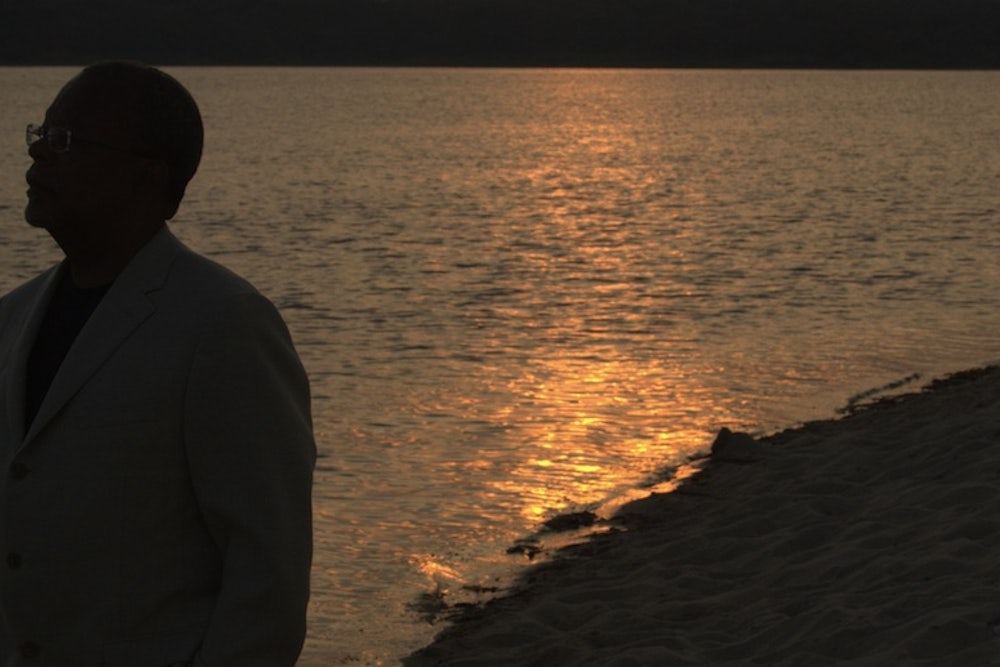There was a Dickensian mood at the National Press Club when, on a stormy Wednesday last week, Harvard Professor Henry Louis Gates, Jr. presided over a dinner fêting the debut of his six-part PBS series on black history and culture, “The African Americans: Many Rivers to Cross,” which airs on October 22. But in the second week of the government shutdown, the conversation turned to more contemporary matters.
“It’s the best of times, it’s the worst of times,” Gates said. “We have a black man in the White House, and the black upper middle class has quadrupled since that terrible day in 1968 when Martin Luther King was so brutally assassinated. At the same time, if you look at the percentage of black children living at the poverty line, guess what? It’s almost exactly the same as the day Martin Luther King was killed.”
The audience included a sizeable contingent from the Congressional Black Caucus, including Texas Congresswoman Sheila Jackson Lee (a classmate of Gates’s from Yale, as they reminded the audience), and her colleagues Marcia Fudge, Yvette Clarke, Al Green, Gregory Meeks, Chaka Fattah, and Barbara Lee. Seated next to Gates in the headlining panel were civil rights leader and U.S. Rep. John Lewis, NAACP Chairman Emeritus Julian Bond, and pioneering journalist Charlayne Hunter-Gault.
The panelists had just finished a buffet dinner of roasted rack of lamb, chardonnay poached pears, and artichoke risotto to assume their places onstage, where a preview of “The African Americans” was queued up. As the tape rolled, they stared up at footage of their much younger selves at the height of the civil rights movement.
“Sometimes, when I look at film footage or photographs of me leading a march—being beaten, being arrested—I see the image, see myself, and it can be difficult to believe,” said Lewis in an interview. “I was very young, sitting in, going on the Freedom Ride. And I think I grew up on those lunch counter stools, and standing in segregated theaters, and marching from Selma to Montgomery.”
During the post-screening question-and-answer session, one man stood up and asked, “The civil rights movement didn’t just produce you guys. It also produced Herman Cain, and it also produced Allen West. How should I respond to them as an African American man? Should I be upset with their politics?”
Bond’s response was essentially an evasion wrapped artfully around a jibe against the former presidential candidate: “Herman Cain and I went to the same college. Why they let him in is a mystery to me.”
Lewis expanded the parameters of the question. “They cannot embrace the changes that are about to occur. It’s going to be a different country,” he offered. “We have to talk about a multiracial democratic society, and people fear that.”
“Is that why the government is shut down?” Gates puckishly interjected. The applause and laughter made the attendees' judgment perfectly clear.
Posed in jest, the question seemed to hang over both the gathering and the city. Heading into the weekend, the federal work stoppage was taking a disproportionate toll on people of color, who have historically found a haven from discrimination in the public sector. The capital’s metropolitan area, home to one of the most diverse populations in the country (albeit one that has seen its numbers slip in recent years), has similarly suffered an outsized impact from local budgetary shortfalls and the sheer economic drag of hundreds of thousands of furloughed workers. Even the ostensible cause of shutdown, the Republican drive to roll back Obamacare, is seen by some as the culmination of a long conservative campaign against racial minorities.
Chatting with members of the crowd after the panel, Bond again showcased a sharp tongue. “The nutcases have taken over. They run the House now, and Speaker Boehner has no power at all,” he said, before shifting his focus to the leaders of yesteryear. “I think there was a degree of collegiality in Congress that has vanished now. These people used to go out together, eat and have a good time together. Now they don’t even speak to each other.”
Ironically, the bygone statesmanship rhapsodized by Bond—and so often clamored for by political commentators—may have been the most prominent casualty of the civil rights revolution that he helped to steer. As political scientists have shown, the era of mid-century bipartisan cooperation was an aberration, fostered by a brief ideological overlap between the racially-moderate Republicans of the North and bigoted southern Democrats. When the national Democratic establishment began its postwar turn away from Jim Crow, alienating what had been the Solid South, a partisan realignment commenced that would eventually flush apostates from both parties and result in the polarization that plagues us today.
These decades-long developments were no more fodder for debate at the Press Club than they have recently been within the Beltway media, however. The panel members, most of them in their seventies, were more interested in revisiting the figures commemorated in Professor Gates’s miniseries. Asked what he would say if given another opportunity to speak to Martin Luther King, Jr., Lewis paused as he glanced down at his plate. “I’d tell him I miss him, and I really do. If it hadn’t been for Dr. King, I don’t know what would have happened to me, personally. And I don’t know what have happened to our nation.
“I thought we’d have more time,” he said.
Linda Kinstler and Kevin Mahnken are reporter-researchers at The New Republic. Follow them on Twitter at @lindakinstler and @kevinmahnken.
